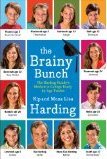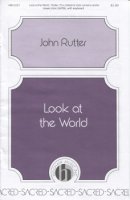I haven't written much on the Common Core school standards mess (just this), but since Florida give us the opportunity to take sample tests, I couldn't resist checking out what was expected of third graders in mathematics. I was a math major in college and usually enjoy taking standardized tests, so it should have been a piece of cookie, as we say in our family in honor of one of Heather's college math instructors, who was, Ziva-like, idiom-challenged in English.
I'm strongly in favor of holding students, teachers, and schools accountable for what is learned in school. What's more, I have always had little sympathy for those who whine about the standardized testing that comes with a welcome concern for such accountability. For endless years schools have failed to work with parents, to open their doors and records to parents, and to provide parents any reasonable assurance that the massive amount of their children's time spent at school is not being wasted. They brought it all on themselves with their high-handed, "we know best, you just have to trust us" attitude.
And to those who complain that too much time is being wasted in school with teaching to and practicing for the tests, I always say the fault is not in the test, but in teaching to it and practicing for it. Any generalized testing system worth its salt should be able to count on the fact that test results are a representative sample of a student's knowledge; teaching to the sample undermines its reliability.
All that said, this is a test that requires practice, and specific, test-related teaching. First, doing math by mouse clicks instead of paper and pencil is a non-trivial exercise. In this I was aided by my hours of Khan Academy math work. But certainly students need time and practice to learn the specific testing interface.
Second, and most important, even with a bachelor's degree in math I found questions that made me stare blankly at the screen. I don't just mean i didn't know the answer: I hadn't a clue how to begin answering the question. (More)
Sunday, September 21, 2014
Give to the Winds Your Fears (words by Paul Gerhardt, translated by John Wesley; music by Joseph M. Martin; Shawnee Press 35029616)
Porter graciously waited in the airport so I could sing this one with the choir. It was a special day because we had a guest cellist to play with us. (You can hear the cello part with the anthem, though not our performance, at the link above). The anthem itself was notable for a couple of reasons. First, the words (albeit in translation) are by Paul Gerhardt, a German hymn writer I've come to appreciate thanks to Stephan's efforts. Second, although I'd never heard of this hymn before, I encountered it again in a Christianity Today article on the temperance movement. (I've included the link, but you'll only just be able to start reading this one unless you're a subscriber.)
Many temperance advocates also promoted voting rights for women. After all, women were more likely than men to vote to shutter the saloons that were destroying their homes. Carrie Nation and her hatchet may be the most famous image, but the 1873-74 Woman's Crusade—which led to the founding of the Woman's Christian Temperance Union (WCTU)—is a more accurate representation, with its crowds of nonviolent protesters linked arm-in-arm before saloon doors. A later WCTU historian described the crusade in Ohio:
Walking two by two, the smaller ones in the front and the taller coming after, they sang more or less confidently, "Give to the Winds Thy Fears," that heartening reassurance of Divine protection now known to every WCTU member as the Crusade Hymn. Every day they visited the saloons and the drug stores where liquor was sold. They prayed on sawdust floors or, being denied entrance, knelt on snowy pavements before the doorways, until almost all the sellers capitulated.
Here's something else I learned from the article:
There are a number of misconceptions about the 19th-century temperance movement. The first, which was shared by temperance activists themselves, is that it didn't work. In fact, it did. American drinking dropped dramatically after the temperance movement took off in the 1830s. Americans in 1830 were drinking 7.1 gallons of absolute alcohol per year per person. ... By 1835, they were down to 5.0 gallons; by 1840, 3.1. By 1910, shortly before Prohibition, this had dropped to 2.6 gallons; post-Prohibition, it was down to 1.2.... Even after every moral loosening the 20th century wrought, from flappers to the counter-culture movement, by the year 2000, the average American drank less than a gallon of absolute alcohol. That's more than six gallons less a year than their ancestors had about 200 years before.
 Your Life Calling: Reimagining the Rest of Your Life by Jane Pauley (Simon & Schuster, 2014)
Your Life Calling: Reimagining the Rest of Your Life by Jane Pauley (Simon & Schuster, 2014)
This is why we have friends. I would never have picked out this book to read. For one thing, I tend to avoid books by or about celebrities. For another, I in no way can identify with people who, when their children go to school, or leave home, or when they turn 50, or retire, say, "What on earth am I going to do with the rest of my life?" I don't need a new life; I have enough planned in the one I have now to see me through more productive years than I can possibly have left.
But a friend highly recommended Pauley's book, and I'll admit that it kept my interest even though I didn't buy into its focus. The Penzey's fans among my readers will best understand the effect that Your Life Calling had on me. It was very much like reading a Penzey's catalog, where I find myself repeatedly annoyed by the self-aggrandizement, the leftist slant, and the in-your-face distain for several of my strongly-held principles—yet I keep reading, because the stories are interesting and inspiring.
Pauley premise is that our generation is the first to have the long lifespan and the leisure to "reinvent" ourselves, possibly several times as we go through life. Today's young people are already doing it ("what we call reinvention is just 'the churn' for them"). In fact, for them it may be more of a necessity, given the pace at which technology (and thus the job market) is now changing. (The last sentence is my analysis, not Pauley's.) But it's new for us.
You may be surprised to know that people over fifty-five represent the largest age group of owners of new business start-ups. At an age when our own parents and grandparents expected to wind things down, people are getting a second wind.
The Stanford Longevity expert, Laura Carstensen, notes that withour new vitality come some pretty big questions. She says, "Those of us living today have been handed a remarkable gift with no strings attached—an extra thirty years of life for the average person. Now that gift is forcing us to answer a uniquely twenty-first-century question—what are we going to do with our supersized lives?"
Permit me an exasperated wail at yet another expert who misunderstands the term "life expectancy." But aside from that, it is true that our generation finds itself thinking in terms of second, often radically different, careers more than previous generations. One only needs to listen to someone of my parents' generation talk to realize that the men, at least, defined themselves very much by their careers. Of my generation this is less true, mostly I think because we were betrayed by the "be loyal to your company and your company will be loyal to you" compact. What is "me" is not my employment, and therefore I am free to move on to something entirely different.
That I get, as evidenced by my need to elaborate on it. I also appreciated Pauley's description of Imposter Syndrome: (More)
It was good to sing this one again.
Sunday, September 14, 2014
To Love Our God (Mark Hayes, Hinshaw Music HMC1576)
Forget Area 51, the NSA's invasive civilian spying, and anything else you may think the U.S. government has tried to keep up its sleeves. Edward Snowden has nothing on me. I will now reveal to you the government's greatest secret:
The United States Post Office has discovered instantaneous transport!
Here at Lift Up Your Hearts! we have obtained a copy of the official government record of a small package sent between the United States and Switzerland. (Not to CERN, but to what our sources indicate may be the home laboratory of one of its top up-and-coming scientists.)
There it is, ladies and gentlemen: the Secret of the Century is out. And you thought only quantum particles could be in two places at the same time.
Next up for our intrepid investigative reporters? Digging into the dirty secret of why it still takes four days to travel the 250 miles from Altamonte Springs to Miami.
Permalink | Read 2183 times | Comments (1)
Category Just for Fun: [first] [previous] [next] [newest]
"Great goddess Athena, great god Apollo, we ask that you impart wisdom in these proceedings today," Jennifer Zarpentine, a Wiccan priestess, prayed at the town board meeting of Greece, New York, in April 2008.
"Help the board to make the right, informed decisions that will benefit the greater good of this community. This we ask of you." As board members continued to bow their heads in prayer, several other meeting attendees responded with the pagan version of amen, "So mote it be."
Thus begins a Christianity Today editorial from a couple of months ago (subtitled "Why we pray before public meetings—and let pagans do the same"). It's a serious article, which is no doubt why the location of this town meeting passes without further comment. To the writer, I suppose, it might as well have been Chili, or Brighton, or any of the other suburbs of Rochester, New York. Being from that part of the state, however, and under no compulsion to be serious, my own first reaction was that nothing could be more appropriate in Greece than prayers to Athena and Apollo.
Permalink | Read 2758 times | Comments (2)
Category Just for Fun: [first] [previous] [next] [newest]
 The Brainy Bunch by Kip and Mona Lisa Harding (Gallery Books, 2014)
The Brainy Bunch by Kip and Mona Lisa Harding (Gallery Books, 2014)
Facebook, like smartphones, can enslave or empower. Or both at once. At the moment I'm feeling grateful to Facebook, and the friend who posted a link that eventually led me to this Today Show feature about the Harding family and their book.
As most of you know, education has long been my passion, particularly the education of young children, and most especially my belief that most children can learn and do so very much more than we give them the opportunity to achieve. It will thus come as no surprise that when I heard of a family where seven (so far!) of the children had gone to to college by the time they were twelve years old, I immediately ordered the book from our library, and finished reading it the day after I picked it up. If read with an open mind, this is a book that can blow away a number of stereotypes and presuppositions, and not just about education.
Although a large number of homeschoolers are Christians, including many who have spectacular records both academically and socially, as the movement has grown there have slso been examples of less-than-stellar achievement, especially in academics. It is unfortunate that when many people think of "Christian homeschoolers," it is the latter example that comes to mind. The Harding family is a stunning counterexample, especially since The Brainy Bunch bristles with buzzwords that set off alarm bells: Mary Pride, A Full Quiver, Josh Harris, early marriage, Michael and Debi Pearl (at least they label the Pearls' book "a bit legalistic"), creationism, the Duggar Family, and others that might send some running for the hills. But hang on—they also mention John Taylor Gatto, Raymond and Dorothy Moore, unschooling, and the Colfaxes, quite on the opposite end of the spectrum (inexplicably leaving out John Holt, however). Mona Lisa and Kip sound like people after my own heart, able to take the best from many sources and leave aside what doesn't work for them. In any case, the family deals a clean blow to many prejudices, including that of the college student who once told them, "Children in big families have low IQs."
The Hardings insist, however, that their IQs are strictly average; their children are not geniuses. This bothered me at first, as it seemed almost a reverse boast, as if there were something wrong with being smart. But I think I know why they make this point, and it's important. There are a surprising number of people who have gone to college at an extremely young age (here's a list of the ten youngest), but they are generally prodigies with super-high IQs and extraordinary skills. This does nothing to encourage most families to believe that early college entrance is possible for their children. Or desirable. Despite its title, The Brainy Bunch shows that this higher-level work is well within the grasp of the average student, and why this is a good idea.
Some might even say the Hardings started out as a below-average family, or at least one with several strikes against it when it came to predicting their children's academic success. Kip and Mona Lisa were high school sweethearts who married in their teens. After high school, he went into the military and she started having babies. Lots of babies. Their life was not easy, requiring many moves, and times of great financial hardship. And yet here they are, with their children not only college graduates but successful at a young age in many fields: engineering, architecture, medicine, music, and more. (More)
We missed a lot of choir this summer (all for good reasons), and I've missed even more keeping track of what we've sung when I have been there. As in not since May 18, after which I took off for Switzerland and other wild adventures with grandchildren. I'm not going to try to remember what I might have missed documenting, but will start with the past two weeks, since the new choir season began. Because these music posts are mostly for my own record-keeping, I won't be including YouTube videos most of the time now. Each title below links to an excerpt, however, and many of our anthems can be found in their entirety (though not with us singing) via a YouTube search, should anyone be interested in more.
Sunday, August 30, 2014
Look at the World (Hinshaw Music, NMC1527)
Sunday, September 6, 2014
Be Unto Your Name (Word Music, O80689124273)).
For some time we double-dipped in choir, singing for two different churches. We've only been back a couple of times to visit what I might call the secondary church, but we seem to be perpetually on their mailing list. Recently I received an e-mail promoting their Youth Choir, which included the following paragraph (emphasis mine).
Elligibility for the Youth Choir is not based on age or grade in school. We welcome participants who are confident readers (grade two-level minimum) and who have the support of their families in making a commitment to attend rehearsals regularly and to be faithful in singing at the 9:00 am service on the third Sunday of each month (September through June). The Youth Choir also leads the singing at the 5:00 pm service on Christmas Eve.
This may not seem radical, but it is. One of our frustrations in an otherwise positive experience with children's choirs is that choir placement was nearly universally made by age and/or grade, independent of musical or emotional maturity. One choir director told me frankly that she wouldn't have it any other way, because age/grade divisions are unarguable, and she did not want to be in the position of telling one family that their child was ready for a higher-level choir and another family that their child of the same age was not. Given that the director in question was a dedicated, self-sacrificing volunteer, I could hardly argue. But that didn't make the situation any less frustrating.
It's not just children's choirs that have this problem. Age discrimination is one of the few forms of prejudice still acceptable today. Grouping by age has never made sense to me—as if the most important factor that any group might have in common is the year of their birth.
 The Jungle by Upton Sinclair (1906)
The Jungle by Upton Sinclair (1906)
I'd heard in high school about this exposé of the Chicago meat-packing industry at the beginning of the 20th Century, but somehow my history teachers and my English teachers didn't collaborate enough to require me to read it. That's probably just as well, as I was operating under the all-too-common theory that if a book was required in school, it couldn't possibly be interesting.
Forty plus years later, I finally read The Jungle, thanks to a suggestion from the Great Courses' Turning Points in American History. Contrary to my expectations, I found it riveting, very difficult to put down. (Whether I would have found it so in high school is another question, and I don't know the answer.) It's depressing enough, following the Lithuanian immigrant protagonist as he and his family are crushed by the dark side of the Industrial Revolution, the unrestrained and unregulated industrial monopolies, and the rampant immigration that encouraged the view of human laborers as expendable. But it's a gripping story, which makes the end of the book all the more distressing. I knew better than to expect a happy ending, although a hopeful one would have been nice. I was expecting a tragic ending, and certainly there's plenty of tragedy to go around. But The Jungle never ends. The protagonist discovers Socialism, and after the reader is led through pages of Socialist diatribe, the book simply ends. Upton Sinclair uses and abandons his human characters for the sake of his cause, just as the industrial and political machines use and abandon them in his story.
Sinclair wanted to write a powerful book, one that would have a profound social effect, like Uncle Tom's Cabin before it, and in this he succeeded. Emotions stirred by The Jungle, including those of President Theodore Roosevelt, led directly to the passage of the Pure Food and Drugs Act and the Meat Inspection Act, and eventually the establishment of the Food and Drug Administration. But the contamination of the country's meat products was not Sinclair's chief concern; he wrote the book for America's workers, for the exploited immigrants. As he later said, "I aimed for the public's heart, and by accident hit it in the stomach."
The Jungle has been accused of exaggeration and falsification, and no doubt Sinclair took some artistic liberties. But all in all the experiences ring true, not only to what we imagine life to have been like at the turn of the 20th century, but also to what has been documented as happening here and now: monopolistic practices, downward pressure on the value of labor due to rampant immigration, enslavement of immigrants, drug and alchohol abuse, sex trafficking, the widening gap between the rich and the poor, and agribusiness practices that encourage disease and contamination. We've come a long way over the last hundred years in protecting ourselves from the evils of the human heart. But the evil in our hearts still remains.
Courtesy of the National Archives, here's an article that gives a better picture of the von Trapp family than The Sound of Music movie does. I still like the movie, but the real characters are more interesting.
Nothing profound today, just something to make you smile. She's 150% of my age.
Permalink | Read 1929 times | Comments (0)
Category Just for Fun: [first] [previous] [next] [newest]
My husband likes me to be with him, to look over his shoulder, while he works. I am exactly the opposite. With a few exceptions—such as when I want someone to "hold my hand" through an unfamiliar or difficult procedure—I hate it when someone watches me work. I fall apart. I trip over my feet, my fingers, my words. Simple tasks that I can do without thinking suddenly become nearly impossible. I become incompetent even in my areas of expertise.
Why? I never had a clue, until I read "The New Neuroscience of Choking" from the New Yorker of a couple of years ago. (Yes, it has been on my To Blog list for that long.)
[C]hoking is actually triggered by a specific mental mistake: thinking too much. The sequence of events typically goes like this: When people get anxious about performing, they naturally become particularly self-conscious; they begin scrutinizing actions that are best performed on autopilot. The expert golfer, for instance, begins contemplating the details of his swing, making sure that the elbows are tucked and his weight is properly shifted. This kind of deliberation can be lethal for a performer.
[An analysis of golfers] has shown that novice putters hit better shots when they consciously reflect on their actions. By concentrating on their golf game, they can avoid beginner’s mistakes.
A little experience, however, changes everything. After golfers have learned how to putt—once they have memorized the necessary movements—analyzing the stroke is a dangerous waste of time. And this is why, when experienced golfers are forced to think about their swing mechanics, they shank the ball. “We bring expert golfers into our lab, and we tell them to pay attention to a particular part of their swing, and they just screw up,” [University of Chicago professor Sian] Beilock says. “When you are at a high level, your skills become somewhat automated. You don’t need to pay attention to every step in what you’re doing.”
Brain research suggests that a major culprit in this problem is loss aversion, "the well-documented psychological phenomenon that losses make us feel bad more than gains make us feel good."
[T]his is why the striatum, that bit of brain focussed on rewards, was going quiet. Instead of being excited by their future riches, the subjects were fretting over their possible failure. What’s more, the scientists demonstrated that the most loss-averse individuals showed the biggest drop-off in performance when the stakes were raised. In other words, the fear of failure was making them more likely to fail. They kept on losing because they hated losses.
There is something poignant about this deconstruction of choking. It suggests that the reason some performers fall apart on the back nine or at the free-throw line is because they care too much. They really want to win, and so they get unravelled by the pressure of the moment. The simple pleasures of the game have vanished; the fear of losing is what remains.
Indeed.
Permalink | Read 4353 times | Comments (1)
Category Random Musings: [first] [previous] [next] [newest]
Recently, I have become wise and venerable, by virtue of celebrating my 62nd birthday. Now I qualify for some more senior discounts! That's a good thing, because this was a very expensive birthday.
The first gift was a two-week trip to Switzerland, which ought to be enough of a present for anyone. But the trip's primary purpose was to assist Janet and the kids in coming to the U.S. for an extended stay, including a month living with us. On top of that, for eight days of that month Heather and her kids joined us, giving us all children and grandchildren here for a while, including Father's Day. Grateful as I am for Skype and other modern means of communication, there is nothing like physical presence and shared activities for building bonds, and I'm especially happy that the cousins had that time together. Living an ocean apart is tough. Overseas (or cross-country) travel with children drains the spirit, body, and pocketbook—but the rewards are incalulable. Yes, it would be better for all concerned if we lived in the same town and could see each other regularly on a more casual basis, but we make the best of what we have, and the cross-cultural diversity (family, state, country) is an important blessing, too. These visits are the most important to document, but such a post requires much more time—and organization of photos—so it will have to wait. At least now you know why this blog has been so silent recently.
Then the
 re's the gift that deserves a post of its own, but for practical reasons will only get bold lettering here: Thanks to Heather (and Jon), we're expecting a ninth grandchild next Februay! Or maybe early March. For Father's Day I'd given Porter this mug, commemorating the visit of the cousins. Heather made their announcement by telling him it was nice, but out of date. :)
re's the gift that deserves a post of its own, but for practical reasons will only get bold lettering here: Thanks to Heather (and Jon), we're expecting a ninth grandchild next Februay! Or maybe early March. For Father's Day I'd given Porter this mug, commemorating the visit of the cousins. Heather made their announcement by telling him it was nice, but out of date. :)
My most expensive birthday present—ever—was the "gift" of a new HVAC system for our house. The old one gave up the ghost in the middle of a Florida summer, and our used-to-colder-Switzerland guests were even more grateful than I was that Porter dove into the project and had us enjoying cool air again in record time. (We had known this was coming eventually; the system was 40 years old.) Let's just say that it's times like this that make me really appreciate having a pool. Kids get a lot less cranky in the heat if you let them swim as much as they want. We won't get to test the heating part of the system for several months.
Skipping the more affordable but none the less valued birthday presents, we come to a life-changing gift: we have finally joined the ranks of the smartphone users. Technically, Porter was one before, having a Blackberry, but that had belonged to IBM, which made the really interesting stuff off limits. I knew we would love smartphones when we finally broke down and got them, but was very reluctant to increase our phone spending by more than an order of magnitude. (Porter's was provided and mine—which works just fine for talk and text—cost $100 per year.)
But change comes to us all, even (especially?) those over 60. Being myself one hundred percent occupied with grandchild-related activities, I left the decision (like that about the HVAC) in Porter's capable hands. After much research, he chose AT&T (we've always had AT&T, except for when IBM forced him to use Verizon with his Blackberry, an unpleasant experience) as the provider, and Samsung/Android for the phones. He has a Note 3 and I a Galaxy s5, and we're both very happy with the choices. I find mine a little too big for comfort, especially in its OtterBox case (which I like a lot), but I do appreciate the screen real estate. I just have to figure out a decent way to carry it.
There's a lot I have to figure out. The phone itself is amazingly intuitive. Say what you like about us old folks, this is certainly no harder to figure out than PDP-12 assembly language and learning to follow a program's progress by turning up the volume on the speaker and listening to the changes in the accumulator register. It's the lifestyle changes that require more careful thought. I am determined to make my new phone a servant, not a master, which I acknowledge is a non-trivial endeavour. I'll probably be blogging more about that for a while than about the good stuff that requires organizing my photos, another non-trivial endeavour. Especially since I now have phone pictures as well as camera pictures.
Speaking of life-changing events, the impetus for our plunge into the smartphone world came when the higher-powers-that-be at IBM decided that Porter could do without his Blackberry—because they could do without his services. I have no doubt he could find another job, but what would be the fun in that? So as of June, Porter is officially retired! He expects to continue to do occasional consulting work; even now, the less-than-higher-powers-that-be at IBM—the ones who really know how good Porter is at what he does—are working hard to get approval to hire him back as a consultant. But for now we are greatly enjoying having him available to the family full time.
Permalink | Read 2318 times | Comments (0)
Category Everyday Life: [first] [previous] [next] [newest]
 Not Exactly Normal by Devin Brown (Eerdmans, 2006)
Not Exactly Normal by Devin Brown (Eerdmans, 2006)
As often happens at the Maggie P., we had some "relatives of a relative" come visit yesterday. One of them, a nine-year-old boy, brought with him this book. I picked it up, read a page, became intrigued, and then spent my spare moments devouring it before the family had to leave.
I appear to be on a roll here. Like The Silent Swan, which I also read and reviewed recently, Not Exactly Normal is a book written for young people, set in a school (middle school age this time), from a Christian perspective ... and I liked it! Two Christian authors in a row who include faith in their books naturally and reasonably, without the awkward, embarrassing, beat-them-over-the-head language of so much recent Christian fiction! Who'd have thought? Even though Not Exactly Normal deals with important philosophical issues, it is not what people think of as a religious book. It's a human book. And one with which I can identify much more than most books written for young people these days. One Amazon reviewer said,
I wonder whether the erudite family and school setting he is privileged to have would be something a "typical" American middle-schooler could really relate to.
But the family (though sadly, not the school) experiences are exactly why I relate to it—and not to most of what's out there. As the same reviewer also said,
Any text that includes discussion of John Donne's poetry, background on Good King Wenceslas, Pele and Mia Hamm, and excerpts from T.S. Elliot's Old Possum's Book of Practical Cats in a way that younger readers can understand and even enjoy is definitely to be recommended.
And, I might add, computing square roots by hand. (Taught in the classroom, though unfortunately not demonstrated in the book.)






